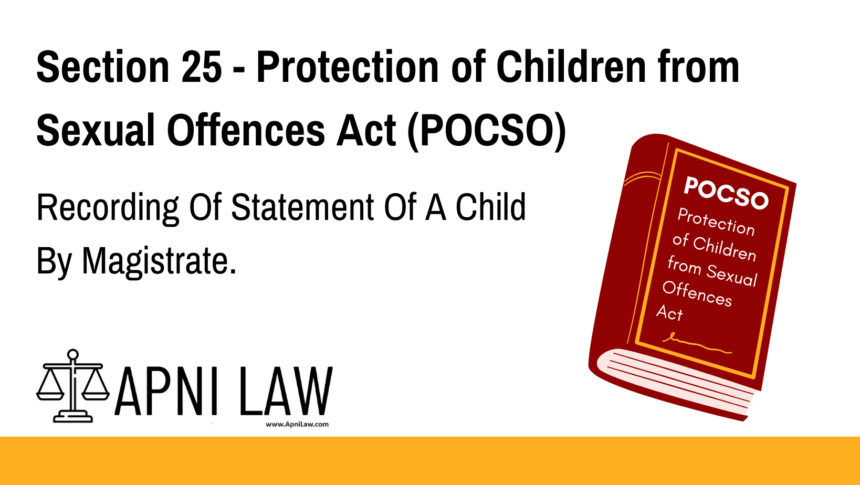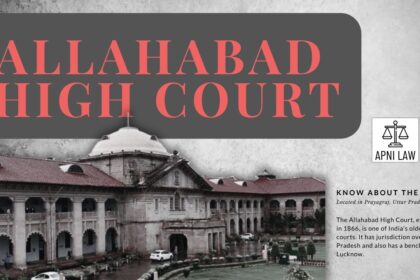Code: Section 25 POCSO
(1) If the statement of the child is being recorded under section 164 of the Code of Criminal Procedure, 1973 (2 of 1974)(herein referred to as the Code), the Magistrate recording such statement shall, notwithstanding anything contained therein, record the statement as spoken by the child:
Provided that the provisions contained in the first proviso to sub-section (1) of section 164 of the Code shall, so far it permits the presence of the advocate of the accused shall not apply in this case.
(2) The Magistrate shall provide to the child and his parents or his representative, a copy of the document specified under section 207 of the Code, upon the final report being filed by the police under section 173 of that Code.
Explanation of Section 25 POCSO
Section 25 of the Protection of Children from Sexual Offences Act (POCSO) addresses the process of recording a child’s statement by the Magistrate. The section ensures that the child’s testimony is accurately preserved and that their well-being is safeguarded throughout the legal procedure.
Subsection (1) requires that the child’s statement be recorded exactly as spoken. This ensures the child’s words are preserved without modification.
Subsection (1) proviso clarifies that the accused’s advocate cannot be present when the child’s statement is recorded. This protects the child from unnecessary exposure to the accused during the process.
Subsection (2) mandates that, once the police file the final report under Section 173 CrPC, the Magistrate must provide the child and their legal representatives with a copy of the relevant documents, as specified under Section 207 CrPC. This step enhances transparency and ensures the child and their guardians are fully informed.
Illustration
Example 1: Recording the Child’s Statement
A 12-year-old child is giving a statement about an abuse incident under Section 164 CrPC. The Magistrate records the child’s words exactly as spoken. According to Section 25(1), the child’s statement must not be altered. Additionally, Section 25(1) proviso ensures that the accused’s lawyer cannot attend during this process, preventing the child from facing any undue pressure.
Example 2: Copy of Documents to the Child’s Representatives
Once the police file their final report under Section 173 CrPC, the Magistrate must provide a copy of the documents (under Section 207 CrPC) to the child’s parents or legal representatives, as per Section 25(2). This step guarantees transparency and gives the child’s family access to the case details.
Common Questions and Answers on Section 25 POCSO
1. Can the advocate of the accused be present when the child gives a statement under Section 164 CrPC?1
Answer: No, Section 25(1) proviso prohibits the presence of the accused’s advocate during the child’s statement to protect the child from further trauma.
2. Will the child’s parents or representatives be given any documents related to the case?
Answer: Yes, under Section 25(2), the Magistrate is required to provide a copy of the case documents (as per Section 207 CrPC) to the child’s guardians once the police file the final report.
3. How does the child’s statement differ from that of an adult under Section 164 CrPC?
Answer: Unlike adult statements, the child’s statement is recorded word-for-word, ensuring no alteration of their words, as mandated by Section 25(1).
Conclusion
Section 25 of the POCSO Act ensures that the child’s statement is recorded with accuracy and care. It prevents unnecessary exposure to the accused and protects the child’s rights throughout the legal process. Additionally, it guarantees that the child’s guardians are provided with important case documents, ensuring transparency and fairness.








